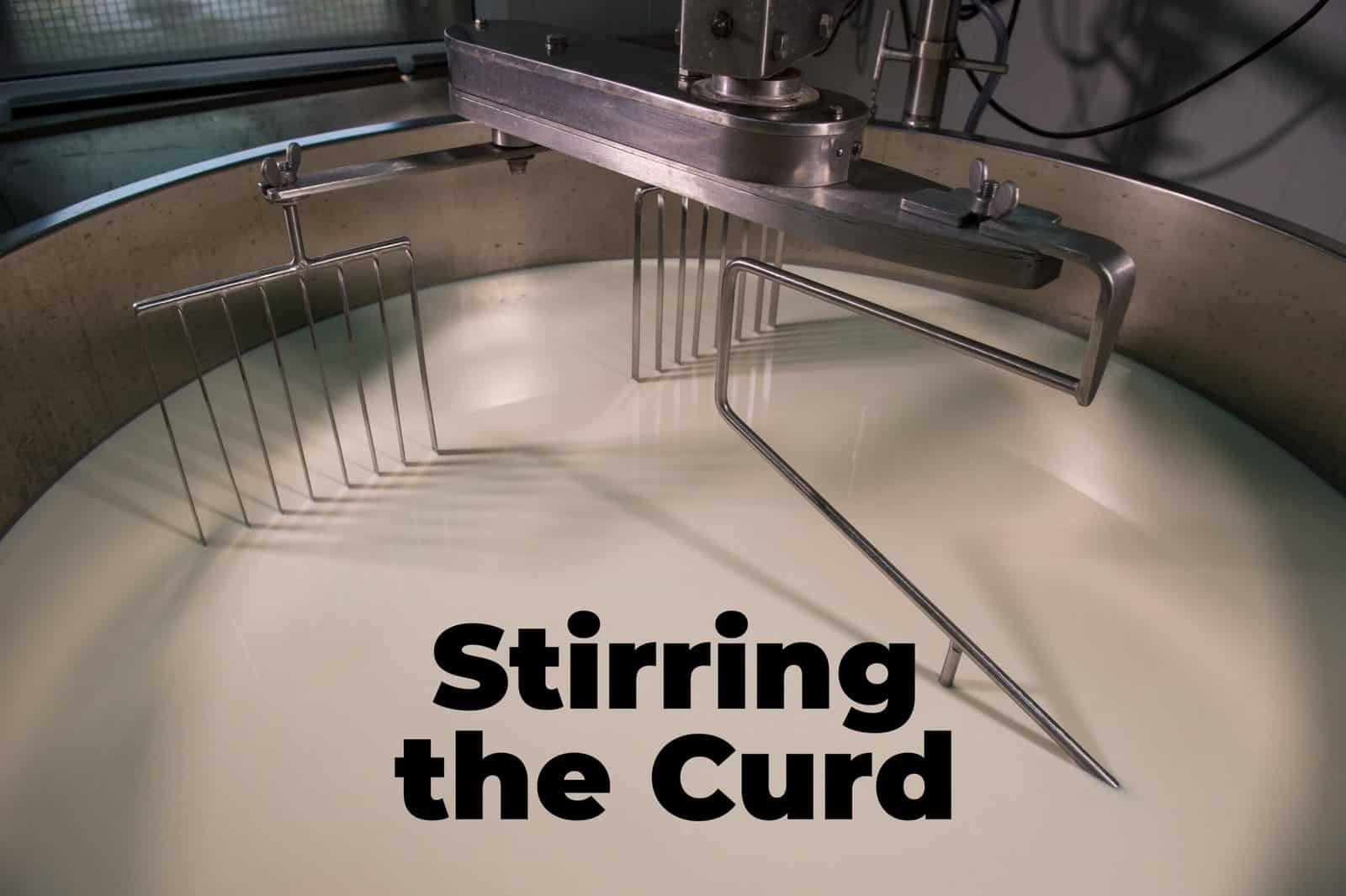
Welcome to Stirring the Curd, a new column in which we explore complex issues within the cheese industry through informed perspectives of dairy farmers, cheesemakers, mongers, distributors, and importers. For each column, we will solicit responses from two industry people with differing views on a topic. Our intention is not to reach a conclusion or choose a side, but to encourage continued discussion. We invite you to share your thoughts and ideas for future topics at editor@culturecheesemag.com, and join the conversation on facebook.com/culturecheesemag.
Molly Semler is co-owner and cheesemaker—along with her husband, Sebastian von Trapp—at von Trapp Farmstead Creamery in Waitsfield, Vermont, which has been in the Von Trapp family since the late 1950s. On their certified organic farm, they make four, multi-award-winning organic cheeses (Oma, Mad River Blue, Mt. Alice, and Savage) from the milk of 42 to 50 mixed-breed cows.
“We felt it was important to transition to organic when we decided to go into cheesemaking. When the farm was selling fluid milk, we were farming in an organic way—we were never adding any chemicals or pesticides—but we weren’t certified organic. We began the process in 2004–2005 and received certification in 2006. We started selling our cheese in 2009.
Being certified organic is a guarantee. When our customers see the organic symbol, they know that it means we use no antibiotics, no chemicals, and no pesticides; our animals are outdoors 365 days a year, and we are regularly inspected.
The certification was a reflection of what we were already doing, and it felt right. A more traditional farmer might wonder why we don’t use antibiotics, but it’s similar to our own health—you can live preventively to reduce problems. People think that organic farmers have to cull cows due to mastitis (infection of the udder), because they can’t use antibiotics. The truth for our farm and many other small organic dairies is that cows don’t get mastitis because organic practices prevent the infection from happening. We rarely, if ever, have to cull a cow due to mastitis.
We are really intentional about how we feed our cows. Our focus is on maintaining rumen health—the same as us focusing on our gut biology. They graze and get dry hay all year round because that’s the best balance for their gut.
Being organic is so much a part of our philosophy, how we eat, what we purchase, and what we want to provide to our community. I also understand that it’s expensive and not accessible for everyone, but it should be; the food system as a whole has to change. Right now, there are a million reasons not to be organic, and there has to be both. Good cheese can only be made with high-quality milk and high-quality milk can only be produced by healthy cows—whether a cheese is organic or not the quality of the milk and the herd have to be high.
Being an organic farmer requires a high level of care, attention to detail, and commitment to the practices that prevent issues. The challenge to being organic is it’s more time, money, and lower production but the benefits are immense as we’re sustaining a healthy system for animals, people, and the planet.”
Andy Hatch is co-owner and head cheesemaker at Uplands Cheese in Dodgeville, Wisconsin, which was certified organic until 2009. Andy, his wife Caitlin, and Scott and Liana Mericka, bought the 500-acre farm from the previous owners in 2014. Scott manages the herd of 175 mixed-breed cows and Andy oversees the production of two raw- milk cheeses: Pleasant Ridge Reserve (the most-awarded cheese in America) and Rush Creek Reserve.
“Uplands was certified organic for many years, but we gave it up in 2009. I was working here then and was part of the conversation, but I wasn’t the decision maker.
The most important reason was that we wanted the ability to treat and thus save a sick cow. So we don’t ever use antibiotics preemptively, but there are times when a cow is sick enough. My children are 9- and 11-years-old and I’ve never given them antibiotics but I would if I had to—wouldn’t we all?
We dry our herd off for several months over the winter, which is the only time we would ever choose to use antibiotics It’s a rare, off-season treatment, and the question of antibiotics getting into the milk is a non-starter. We are legally required to not allow antibiotics in the milk.
For the most part we operate the farm organically. We have a herd that’s appropriately sized for the amount of pasture we have, which allows our cows to fertilize the land and for the land to sustain the cows. Our 500 acres are almost entirely perennial pasture, and our cows are rotationally grazed. We don’t rely on synthetic fertilizer. As far as weed control, we do that with the cows and mechanically—clipping, rather than mowing. Thistle is our big nemesis, so there are times when we’ll use weed killer but it’s targeted—one plant at a time.
I think organic certification has value. It’s so hard to communicate to the public what it looks like to farm responsibly. It’s nuanced, and it’s different throughout the country. The public’s knowledge is slim and attention span is short, and to the extent that a single word can convey a lot of information, organic is useful.
We prefer to lead with flavor when showing people our cheese. To use cheese as a tool to teach them about responsible farming, the cheese needs to be delicious. The beauty of making cheese from pastured milk is that it draws a direct line between deliciousness back to environmental stewardship, animal health and human health. Organic certification can help a consumer make those connections, but in the face of delicious cheese and transparent farming practices, it doesn’t need to.”



